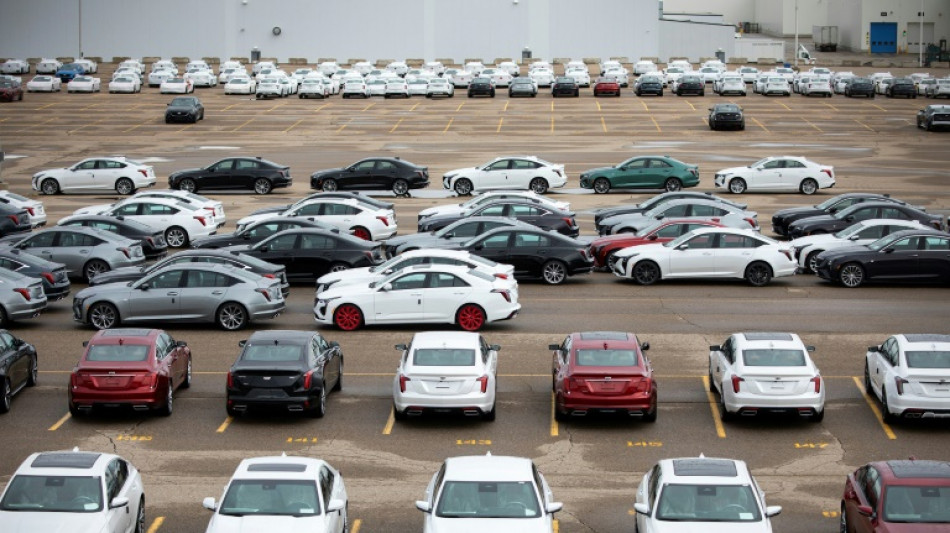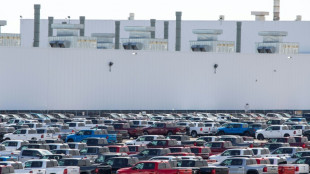

GM profits top estimates, but automaker reviewing outlook due to tariffs
General Motors reported a dip in first-quarter profits but topped estimates Tuesday as the automaker said it was reexamining its 2025 outlook in light of uncertainty over US tariffs.
GM, which has been among the automakers hardest hit by President Donald Trump's multiple tariff announcements, pushed back its earnings conference call to Thursday after The Wall Street Journal reported Monday night that Trump would ease some levies on automakers.
Profits were $2.8 billion, down 6.6 percent from the year-ago level, while revenues rose 2.3 percent to $44 billion.
Operating profits in North America declined from the 2024 level, but the company notched positive China equity income as it seeks to emerge from a difficult period in the world's second-biggest economy.
GM Chief Financial Officer Paul Jacobson said a fire involving a supplier resulted in less output of full-sized sport-utility vehicles and trucks, meaning that its mix of autos sold in the quarter included more cars with lower profit margins.
But GM's underlying business "is still performing pretty well," he told reporters.
Jacobson said the company was "reassessing" its projections from its January forecast, which made no attempt to incorporate tariff effects.
"We believe the future impacts of tariffs could be significant," said Jacobson, adding that the company was engaged in "productive conversations" with the Trump administration, which is pressing companies to build more autos in the United States.
The Trump administration's 25 percent levies on car imports mean higher costs for GM vehicles assembled in Mexico, South Korea and other countries.
GM said earlier this month that it plans to boost truck production at its plant in Fort Wayne, Indiana.
GM is looking at other actions "we could implement quickly, efficiently and with low near-term costs," Jacobson said Monday afternoon.
Later Monday, the Wall Street Journal reported that Trump agreed to soften the impact of tariffs on automakers.
The shift means companies paying 25 percent tariffs on car imports will not also pay other duties, such as those on steel and aluminum.
The administration is also allowing some reimbursements on foreign auto parts, levies that were supposed to take effect on May 3, said the Journal, citing unnamed sources.
US automakers have been among the hardest-hit sectors because the tariffs affect imports from Mexico and Canada.
Detroit carmakers maintained investments in those markets after Trump renegotiated the North American Free Trade Agreement during his first term.
Analysts have warned that the tariffs could result in higher prices, denting US car sales and threatening jobs.
Shares of GM fell 2.4 percent in pre-market trading.
P.Ghosh--MT




